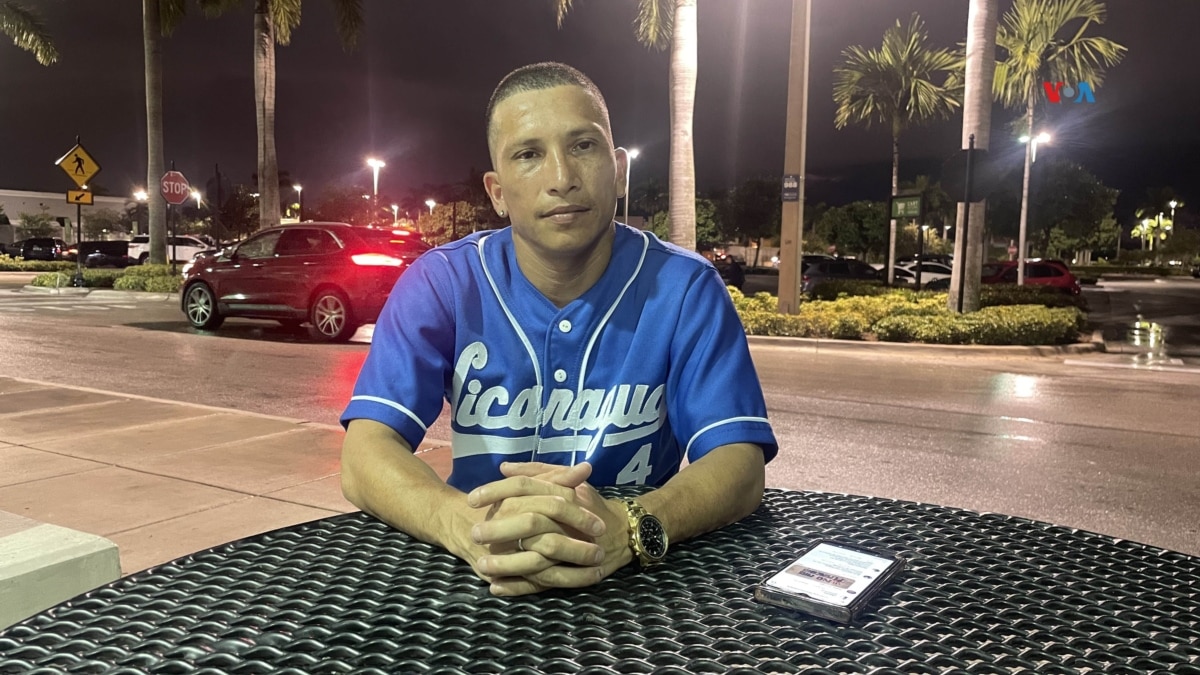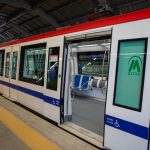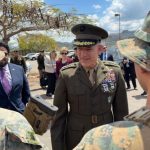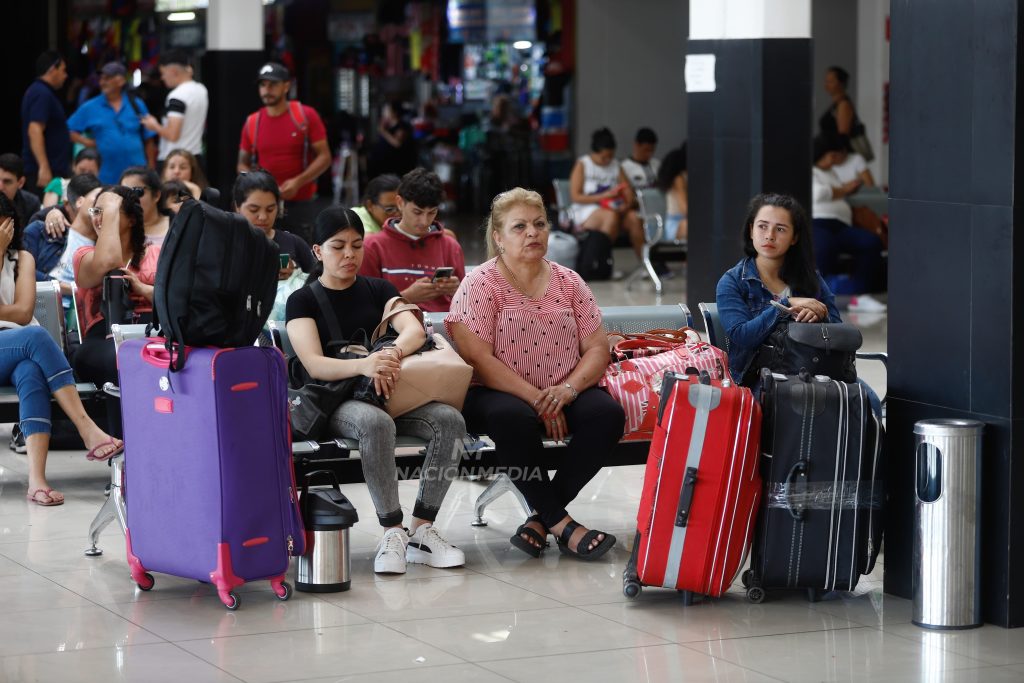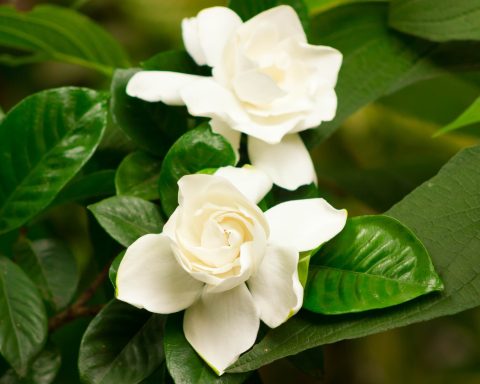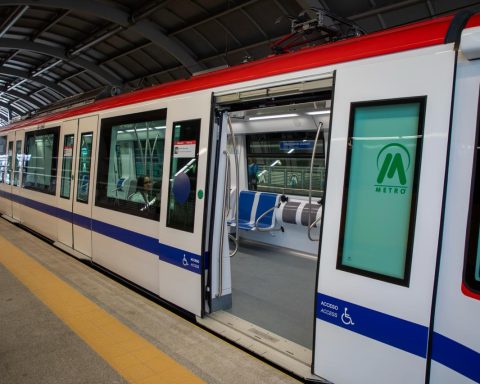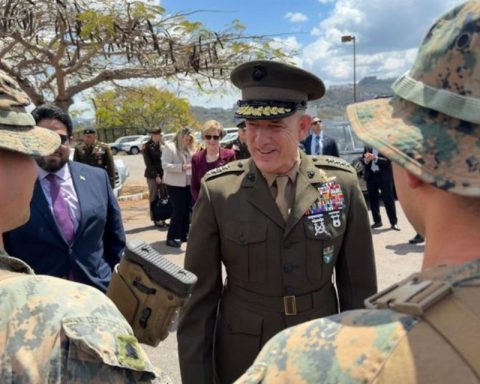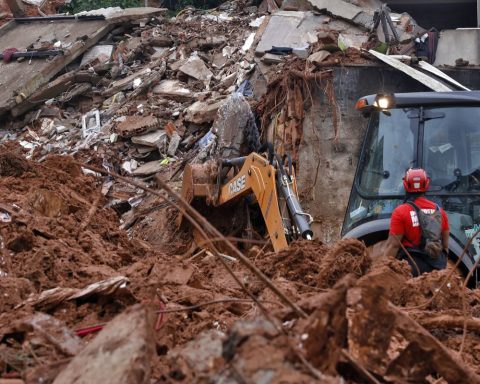Six years after the 2018 protests against the government of Daniel Ortega in Nicaragua, one of its participants tells the Voice of America his experience, his time in prison, his departure from the country and his arrival in the United States.
His name is Hamilton Sánchez. He is 38 years old and is from the department of Chinandega, in Nicaragua. He has been living as a refugee in Miami since late 2019 after a five-month journey that took him from Nicaragua to Honduras, Guatemala and Mexico until he finally turned himself in to the US authorities at the Piedras Negras border crossing, bordering the state of Texas.
In the Florida city, the man spoke with the VOA in the middle of a torrential downpour under the portico of a supermarket.
The office of the United Nations High Commissioner for Refugees (UNHCR), which commemorates World Refugee Day in June, published The Global Trends Report 2023According to the text, by May 2024, the global figure for forced displacement will reach 120 million.
“It is really worrying to think that 23 million people forced to flee are from our continent,” he told the VOA, Juan Carlos Murillo, Head of External Relations of the UNHCR Office for the Americas.
Hamilton Sánchez’s story is one of those 23 million, but his began with dissatisfaction with his country’s government.
“My family comes from liberal roots and I have always been immersed in what is happening in my country, in humanitarian aid, human rights because I feel the desire and the duty as a Nicaraguan to be able to support our people who are going through such adverse situations,” he says.
Waking up in Chinandega
The first protests broke out on April 18mainly from students and the elderly, to Ortega’s announcement of reforms to the pension system, which increase the contributions paid by workers and employers.
“In my department it started on the 20th, how ironic that my birthday is on April 21,” he says, adding that he joined the protest “like any good Nicaraguan: no one paid me, no one forced me. We were called together by social media.”
Sánchez recalls how the initial protesters went from twenty to around 500 in a few minutes, and then, in the hour-long journey from the outskirts of the city to the very centre, there were already around 2,000.
The official response to the protests and barricades was not long in coming, he says. “The police attacked us and hooded people arrived with sticks, clubs, and even armed men to start repressing the people,” he says.
Death, he says, hit him close to home with that of the young protester Juan Alexander Zepeda Gastón, aged 18. “I saw Gastón fall with a gunshot near his left eye; he was a high school student, he fell about three metres from where I was. Two boys put him on a motorbike to take him to the then Hospital España,” he explained.
According to Sánchez, the record of fatalities following the demonstrations carried out by civil society organisations put the number of deaths at 420, seven of them in Chinandega.
But a report In 2021, the Inter-American Commission on Human Rights (IACHR) estimates that “the record of fatal victims in the context of the crisis accounts for at least 355 victims during the repression of social protests”
Arrest, imprisonment
According to this activist and member of several civil society organizations such as the Reflection Group for Political Prisoners (Grexp), his arrest occurred on October 30, 2018, half a year after the protests began, taking him to the police unit in his town.
“They took me to an office and there was a board with my name and the names of other people with photographs and everything: dates from when the protests began until that day,” he recalls.
He was accused of organizing the demonstrations, so his criminal record included seven charges, namely: two charges of murder, attempted murder, being the head of a “roadblock,” burning down the Chinandega mayor’s office, kidnapping, and burning the then mayor’s truck.
He did not accept any of the alleged charges, he says. And there, where he was only a month, began a journey that took him from the El Chipote prison to the one known as La Modelo, both in Managua. There, he confesses, he suffered all kinds of abuse.
“They were interrogations at 2:00 or 3:00 in the morning, every day (…) in short, the hardest part was in El Chipote, sometimes they stripped you, sometimes they tied your hands and feet, they beat you. I have after-effects, sometimes when I go to the bathroom, I bleed. I have not been able to sleep since then, the most I sleep is two or three hours a day,” he says.
USA as a destination
In April 2019, he was finally released under the amnesty law known as the “Pardon Law,” a fate that dozens of other released prisoners had enjoyed. Two months later, he decided to embark on the adventure of emigrating in order to reach the United States, where he would be granted asylum for political persecution on the border with Mexico.
“My organization published it on social media when I turned myself in. I think the United States saw the post because I was only detained for two days,” he reveals.
Today, he works at a landscaping services company in Miami, Florida, to earn a living, while, he says, continuing to provide solidarity to those who remained in Nicaragua and those who arrive in the United States seeking refuge.
“I do it personally and also as an organization. And every day I pray to God for the freedom of our country,” she says.
For those around the world who have made the difficult decision to emigrate, fleeing for various reasons, Sánchez has a warning: “The message is first and foremost to safeguard your lives, both inside and outside your country. Sometimes you suffer more being in exile than in your own country.”
Connect with the Voice of America! Subscribe to our channels Youtube, WhatsApp and to newsletter. Turn on notifications and follow us on Facebook, X and Instagram.
